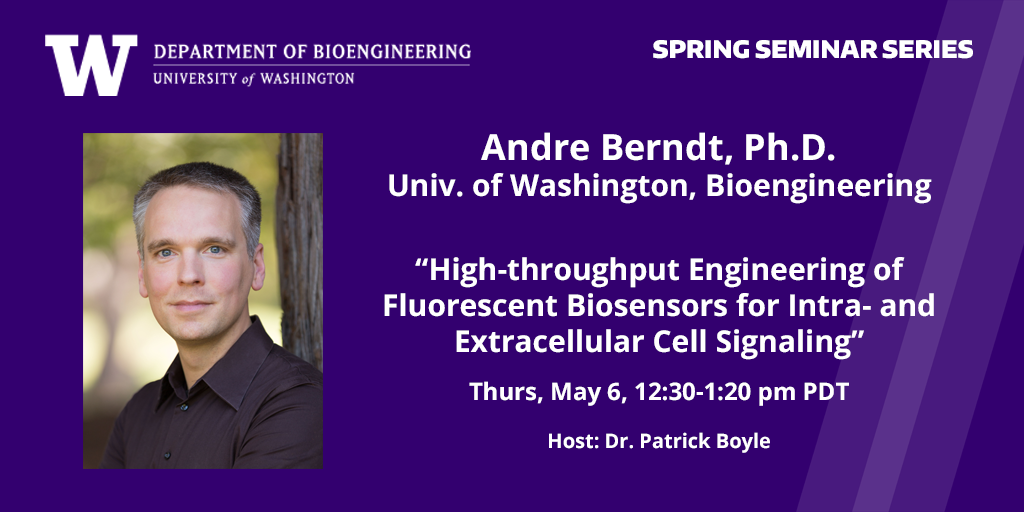High-throughput Engineering of Fluorescent Biosensors for Intra- and Extracellular Cell Signaling
Speaker Details:
Dr. Andre Berndt
University of Washington
Lecture Details:
May 6, 2021
12:30 p.m. - 1:20 p.m.
Assistant Professor of Bioengineering
Register for this Webinar
Abstract:
Human perception and the understanding of our world depend strongly on processing visual information. Especially with protein-based probes, we are now within reach to visualize almost any dynamic biological process. However, proteins are inherently complex, which makes it difficult to derive and apply general engineering principles. Thus, the throughput of generating novel probes is severely limited.
In this talk, I will describe how our lab invents and utilizes novel technology to increase the throughput of protein engineering by order of magnitude. Furthermore, I will show examples of sensor technology that can detect pathological levels of oxidative stress as well as the activation of opioid receptors in the brain. This work critically highlights our strong partnerships with neuroscience and stem cell labs to develop custom-tailored sensor technology. These novel approaches can ultimately help to better understand, among others, neurodegenerative and muscular-degenerative diseases and the complex dynamics of information processing in the brain.
Speaker Bio:
Andre Berndt is an assistant professor at UW in the Department of Bioengineering, where he develops molecular biosensors for applications in neuroscience and stem cell research. He received his Ph.D. in Biophysics from the Humboldt University in Berlin, Germany, after elucidating the molecular mechanism of the light-gated cation channel Channelrhodopsin-2. Andre Berndt continued his work as a postdoc at Stanford University, where he invented and applied innovative technology to untangle neuronal circuit complexity. These tools and their successors are now essential components in the field of optogenetics and have been prominently featured in journals such as Nature, Science, and more. His vision is to lead the rapid development of fluorescent biosensors at UW, which could visualize dynamic activity in cells and organs with unprecedented accuracy and specificity. If successful, the outcomes could provide advanced technology that facilitates a deeper understanding of the complex physiology in the brain, heart, and other organs that drive pathological states.


